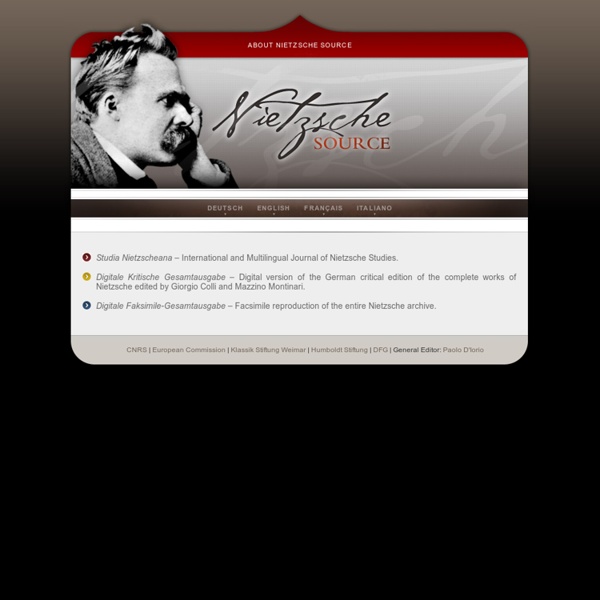



Fonds Ricoeur Ethics, Applied Under what conditions is an abortion morally permissible? Does a citizen have a moral obligation to actively participate (perhaps by voting) in the democratic process of one’s nation (assuming one is living in a democracy)? What obligations, if any, does one have to the global poor? Under what conditions is female genital excision morally permissible? This article first locates applied ethics as distinct from, but nevertheless related to, two other branches of ethics. One particular kind of applied ethics that raises distinct concerns is bioethics. This article ends with a discussion of the role of moral psychology in applied ethics, and in particular how applied ethicists might appropriate social psychological knowledge for the purpose of understanding the role of emotion in the formation of moral judgments. Table of Contents 1. One way of categorizing the field of ethics (as a study of morality) is by distinguishing between its three branches, one of them being applied ethics. 2. a.
spinoza.fr › Une lecture continue de l’Ethique de Spinoza Association Présence de Gabriel Marcel Là où une philosophie orgueilleuse et aveugle prétend nous convaincre qu'il n'existe qu'un vide, un néant - il y a sans doute au contraire une plénitude de vie, les merveilleuses réserves d'un monde où fourmillent les promesses, où tout ce qui existe est appelé à l'universelle communion, où nulle possibilité, nulle chance ne peut être perdue sans recours. Toutefois, notre humaine structure est telle que cet immense consensus créateur ne peut être que par nous pressenti. Et il faut déclarer très fort qu'une philosophie qui, cédant aux complaisances de l'optimisme, refuse de faire sa place à la tentation du désespoir, méconnaît très dangereusement une donnée fondamentale de notre situation. G.M. Pour une sagesse tragique (Paris, Plon, 1968) A few pages are translated in the Bibliographie and Gabriel Marcel.
Kenniscentrum (vervolg) : Bureau Integriteitsbevordering Openbare Sector Er wordt nog niet zo heel lang vergelijkend onderzoeken gedaan naar ethiek binnen de centrale overheden van de 27 EU-lidstaten. Slechts een enkele studie gaat in op de institutionalisering van ethiek en de effectiviteit van de instrumenten op dit gebied. Om deze leemte aan kennis hierover op te vullen is binnen de EU aanvullend onderzoek gedaan. Het onderzoek gaat een stap verder dan alle studies tot nu toe op dit gebied. In deze bijzondere vergelijkende studie wordt geanalyseerd in hoeverre de overgang naar een nieuw en meer complex concept van ethiek en bestuur heeft bewezen effectief en vruchtbaar te zijn. De auteurs stellen dat discussies over de ethiek beter moeten zijn geïntegreerd in andere beleidsterreinen die het gedrag van ambtenaren beïnvloeden. Download 'Effectiveness of Public-service Ethics and Good Governance in the Central Administrations of the EU-27 (1.6 MB)' Auteurs: Christoph Demmke/Timo Moilanen, Uitgever: Peter Lang, Frankfurt/M., 2012.
Société Internationale de Recherche Emmanuel Levinas A l’occasion de la sortie récente de trois livres publiés par la SIREL aux Editions Manucius 16 décembre 2018 de 14 :00 à 17 :00 CCJC - Centre Jérôme Cahen 44 rue Jacques Dulud - 92200 Neuilly sur Seine Échanges et débats avec quatre philosophes autour de trois thèmes Entrée libre L’éthique peut-elle être au centre de tout ? La pensée de Levinas n’est pas un simple moment de l’histoire de la philosophie. Judaïsme et philosophie, au travers de 3 grandes figures, Jankélévitch, Bergson, Levinas Henri Bergson, Vladimir Jankélévitch et Emmanuel Levinas ont conçu la relation entre philosophie et judaïsme de manière fort dissemblable. Langage et silence Le langage baigne assurément la condition humaine et pourtant bien des expériences sensibles semblent irrémédiablement bafouées par leur transcription linguistique. Avec: Jean-Michel Salanskis; professeur émérite de philosophie à l’Université Paris Nanterre. Corinne Enaudeau; professeur honoraire de philosophie. Contacts :
homepage Centre Emmanuel Levinas Responsable : Danielle Cohen-Levinas Le Collège des études juives et de philosophie contemporaine a été fondé en en 2008 à l’Université Paris IV Sorbonne par Danielle Cohen-Levinas. La pensée juive, ainsi que les traditions herméneutiques propres au judaïsme, ont souvent suscité de vives polémiques au sein de la tradition philosophique. Citons, à titre d’exemple, le débat qui opposa les défenseurs de Platon et d’Aristote contre les disciples d’Averroès, ainsi que la violente controverse autour de l’œuvre de Maïmonide qui eut pour conséquence en 1232, à Montpellier, l’organisation d’un autodafé du Guide des perplexes.
Welkom op de voorpagina Société Michel Henry OBA Live 29 oktober 2013 SAINT AUGUSTIN Cette icône a été écrite par Philippe Grall de l'atelier Saint André . Le petit olivier dont une branche a été sectionnée, fait référence à celui sous lequel méditait Saint Augustin et à l'Eglise en Afrique du Nord. Après s'être éteinte elle a donné une nouvelle branche. Le contenu du site est disponible sur un Cd-Rom. Les amis de Marcel Gauchet Association Castoriadis